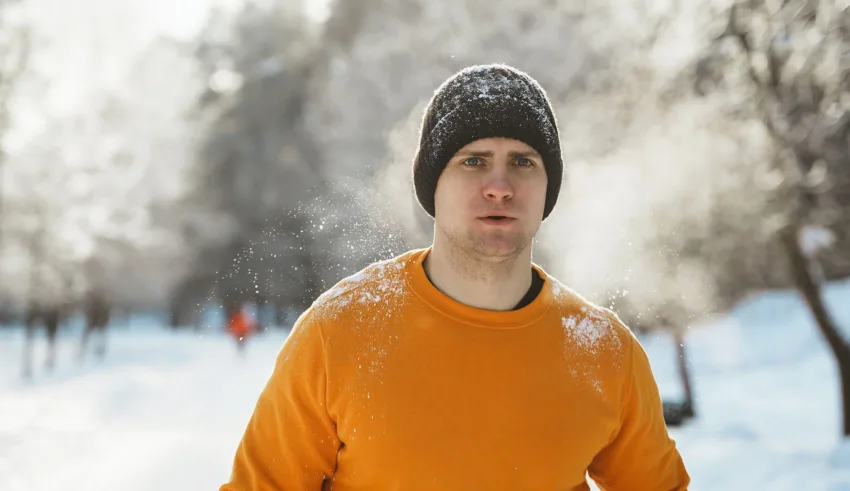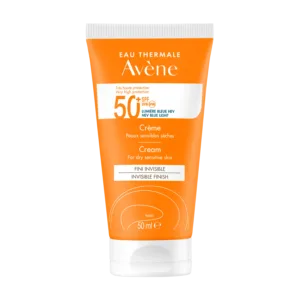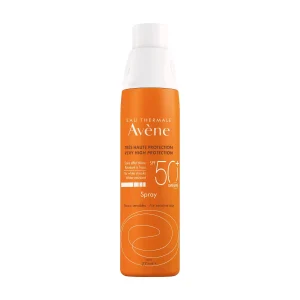
Winter is all about snow. And when it does snow, there’s one behavior everyone should adopt: sun protection. With the cold in the air and snow on the ground, you’d think the risk of sun damage would be pretty low. Not so. In fact, snow can multiply your UV exposure as it reflects the sun’s rays. Read this article from The Dermo Lab in collaboration with the dermatologist Dr. Lamiaa Hamie to find out how snow can cause sun damage.
How does snow amplify UV exposure?
While many people associate sunburn and the need for protection with the beach, snowy regions can present an equally high risk of skin damage due to sun exposure and the intensity of UV rays. Here’s some important information to bear in mind when planning a trip to the snow:
- The intensity of UV radiation increases with altitude. UV radiation is more intense in alpine regions than at sea level, because the atmosphere is thinner the higher you go, which means that more radiation reaches the Earth’s surface when you’re in the mountains. In fact, the intensity of UV radiation increases by around 10% for every 1,000 meters above sea level.
- Snow almost doubles the intensity of UV radiation to which you are exposed. Snow is white and therefore acts as a reflective surface for UV rays. Fresh snow can reflect up to 90% of the radiation from the ground. This means that any exposed skin is hit twice by the sun, doubling your exposure to harmful UV rays.
According to Dr. Lamiaa Hamie, snow and reflective surfaces in winter can intensify sun exposure through a process called albedo. Albedo refers to a surface’s ability to reflect sunlight. Snow and ice have a high albedo and reflect a significant amount of UV rays. This reflective effect increases overall UV exposure, making people more sensitive to sun damage.
With these facts in mind, it’s obvious that sun protection should be a major concern when planning a hiking, snowboarding, or skiing trip in the mountains.
What are the risks of UV exposure in the snow?
Here are 5 reasons why you shouldn’t neglect sun protection during the coldest months of the year:
1- Sunburn: Although UV rays are stronger in summer, they can still cause sunburn in winter.
2- Skin cancer: Sun protection is recommended all year round to reduce the risk of associated cancers. Numerous studies have established a link between UVB rays and skin cancer. Using adequate sun protection throughout the day can reduce the risk of developing skin cancer.
3- Photoaging: UVB rays are known to reduce collagen levels in the skin, which can lead to sagging skin and premature aging. In fact, it’s estimated that around 90% of wrinkles are caused by excessive exposure to UVB rays. Sun protection measures such as sunscreen can also help preserve your skin’s youthful appearance.
4- Skin dehydration and dryness: Cold, dry winter air combined with UV exposure can lead to skin dehydration, exacerbating dry skin problems and making the skin more prone to damage.
5- Eye damage: Ultraviolet (UV) rays are dangerous to your eyes, whatever the time of year, and they can even penetrate clouds. These almost invisible rays are not fully absorbed in your atmosphere (UVA or UVB) and affect your skin and eyes.
How to protect yourself from the sun in the snow?
According to Dr. Lamiaa Hamie, certain parts of the body are often more prone to sun damage during winter due to increased exposure and reflection of sunlight. The face, especially the nose, cheeks and lips, as well as the hands, can be more sensitive. It is therefore essential to protect these areas despite cooler temperatures, as UV rays remain present and can damage your skin.
1- Use sunscreen to protect exposed areas of the skin. SPF 30+ sunscreen should be worn at all times when outdoors. Sunscreen should be applied 20 minutes before going outside and then reapplied every two hours to guarantee its effectiveness. Make sure you cover the areas often overlooked, such as the tops of ears, around the eyes, and hairline.
Our choice of sunscreens:
For oily and acne-prone skin:
Eau Thermale Avène Very High Protection Fluid SPF 50+
For dry skin:
Eau Thermale Avène Very High Protection Cream SPF50+
For the body:
Eau Thermale Avène High Sun Protection Spray SPF 50+
2- Wear a lip balm with SPF 30+ or higher. Lips are a particularly sensitive part of the body to sun exposure, so make sure you wear a lip balm that protects you from the sun at all times. It also has the advantage of soothing chapped or dry lips, which are common in cold weather.
3- Wear a hat. Although sun cream is a good start, it doesn’t offer complete protection. A hat that can provide a little shade and protect the top of your head is therefore an excellent complement to your snow gear.
4- Wear sunglasses. Snow blindness is a painful condition caused by sun damage to the cornea of the eye, and repeated exposure can lead to other eye conditions such as cataracts. Wearing sunglasses can reduce exposure and protect the eyes from sun damage.
5- Wear protective clothing. The cold temperatures of snow vacations mean you need to wear clothing that covers your arms and legs, including high collars and gloves. Dr. Lamiaa Hamie advises wearing protective clothing, such as long sleeves, and pants, to minimize direct exposure to reflected sunlight.
6- Seek shade in the snow. Dr. Lamiaa Hamie recommends, wherever possible, seeking shade or creating shade with umbrellas, trees or other structures to reduce direct exposure to reflected sunlight.
Summary
- Ultraviolet (UV) radiation is more intense in mountain regions than at sea level, and snow is highly reflective. It is therefore advisable to protect yourself from the sun at all times when out on the snow.
- Cover up with clothing and a hat, apply lip balm to your lips and a broad-spectrum, water-resistant sunscreen SPF30 (or higher) to all exposed parts of the skin, and reapply every two hours.
- Wear sunglasses to protect your eyes from the harmful effects of UV rays.
Winter is here, but that’s no reason to ditch the sun protection habits you’ve developed over the summer. By continuing to protect yourself from the sun during the colder, cloudier months of the year, you reduce the risk of developing many problems. Don’t forget to drink enough water to stay hydrated and protect yourself from the sun at all times.











